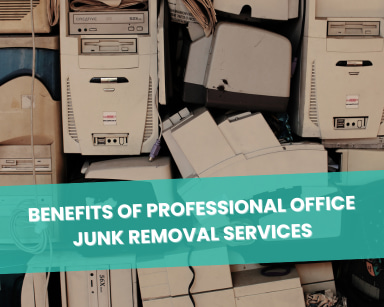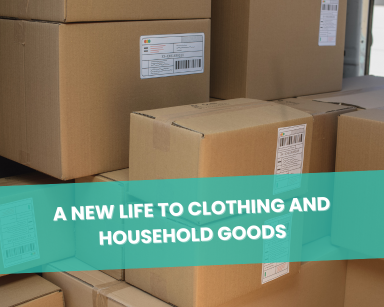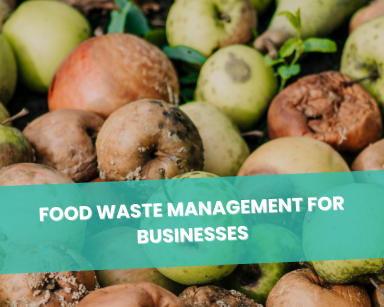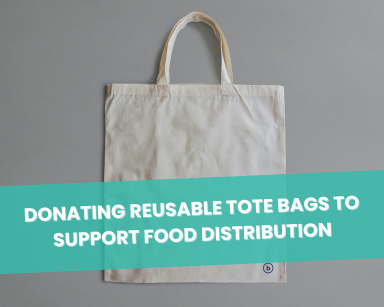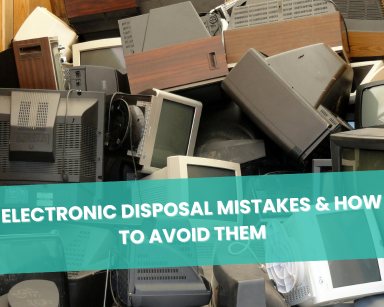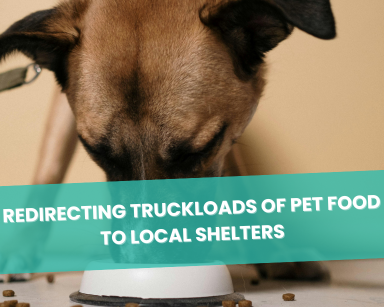How Federal Laws and Our Systems Protect You When Donating
Companies often worry about donating items because they fear getting into legal trouble if something goes wrong. For example, if a donated item causes someone to get sick or injured, the company might be blamed under federal laws.
This fear of facing criminal charges or lawsuits makes many companies hesitant to donate their excess goods. Instead, they might choose to throw these items away to avoid any potential problems.
However, there are important laws and safety measures in place to protect companies when they decide to donate, ensuring that they can help others without worrying about legal issues.
In this article, we will explain how federal laws and our safety systems protect you when you donate.
Table of Contents
Understanding Legal Protections
Under these laws, donors are protected from civil and criminal liability if their donated items cause harm or injury due to their condition or packaging.
The Good Samaritan Food Donation Act of 1996
The Good Samaritan Food Donation Act of 1996 is a very important law. It was created to encourage people and companies to donate food without worrying about getting into trouble.
Before this law, many companies were scared to donate food because they thought they might be sued if someone got sick from the donated food. This law helps by protecting those who donate food in good faith.
This means that as long as the donor believes the food is safe to eat and they follow proper safety rules, they won’t be held responsible if something goes wrong. Because of this law, more businesses feel safe donating their extra food instead of throwing it away. This helps reduce food waste and makes sure that people in need can get free meals.
The Food Donation Improvement Act of 2022
The Food Donation Improvement Act of 2022 made the protections even better. It expanded the types of donations covered by the law. Now, not only food donations are protected, but other types of donations can be safe too.
This means that businesses can donate items like personal care products, household goods, and other necessities without fearing legal consequences. The new law also strengthens the safety net for businesses.
It gives them more confidence to donate items that can help people in need. With these improved protections, businesses can make a bigger impact by donating a wider variety of goods.
This helps reduce waste and supports communities more effectively. Thanks to these laws, donating is safer and easier, encouraging more businesses to contribute to helping others.
The Process of Beneficial Reuse
Our Beneficial Reuse Program is designed to transform unwanted products into valuable resources for communities in need. This program not only helps reduce waste but also provides significant benefits to businesses and society.
How Beneficial Reuse Works
Our Beneficial Reuse Program follows a straightforward & efficient process to ensure that items are reused safely and effectively.
- Identification of Reusable Items: We identify products that are in good condition but are no longer needed by businesses. This includes items like overstock, returned goods, and products with minor defects.
- Matching with Communities: We match these items with local charities and non-profit organizations that can put them to good use. This ensures that the products reach those who need them the most.
- Pickup and Transportation: We handle the logistics, including pickup and transportation of the items. Our team ensures that the items are transported safely and efficiently to their new destinations.
- Compliance and Documentation: We streamline and digitize all necessary documentation for compliance and tax benefits. This includes providing donation receipts, impact reports, and tax write-off documentation.
Benefits of Beneficial Reuse
By participating in our Beneficial Reuse Program, businesses can enjoy several advantages:
- Cost Savings: Businesses can save up to 50% compared to traditional disposal methods like landfilling or incineration. Additionally, tax write-offs can offset expenses, making the program self-sustaining.
- Environmental Impact: Reusing products helps reduce waste and the associated costs of recycling services, incineration, and landfilling. It supports the circular economy, where waste is minimized, and resources are optimized.
- Social Responsibility: Donating items to communities in need helps improve corporate sustainability and social impact. It also enhances the company’s reputation as a responsible and caring organization.
Benefits of Donating vs. Landfilling
Donating surplus items not only assists those in need but also greatly reduces environmental waste. This sustainable practice fosters community welfare and promotes a greener planet.
Environmental Impact
When companies donate items instead of throwing them away, it has a big positive effect on the environment. Donating reduces waste because it keeps usable items out of landfills. This is very important because landfills are places where trash is buried, and they can harm the environment.
By donating, companies make sure that items that are still good get used by people who need them instead of just being wasted. This helps promote sustainability, which means taking care of our planet and using resources wisely. When we donate, we reduce the amount of trash, save resources, and help keep our environment clean and healthy.
Social and Community Benefits
Donating items also has great benefits for society and communities. When companies donate, they support people in need and make a positive difference in their lives. This creates a ripple effect, spreading goodwill and positivity throughout the community.
- Helping Those in Need: Donations provide essential items to people who might not be able to afford them otherwise.
- Building Stronger Communities: When companies give back, it strengthens the community and brings people together.
- Creating Positive Social Impact: Donations show that companies care about more than just making money; they care about people too.
- Enhancing Company Reputation: Businesses that donate build a good reputation and are seen as responsible and caring.
These benefits help create a better society where everyone has access to what they need.
Financial Advantages
There are also financial benefits to donating instead of landfilling. When companies donate, they can get tax benefits. This means they might pay less in taxes because they are giving away items to help others.
Also, donating reduces waste management costs. Getting rid of trash can be expensive, so donating usable items saves money. And, with the legal protections in place, companies can donate safely and confidently without worrying about getting into legal trouble. This makes donating a smart, cost-effective option that helps both the company and the community.
Real-life Examples and Case Studies
Many companies have successfully donated items without any issues, thanks to strong legal protections and safety measures. These stories show how donating can be both safe and beneficial.
For example, Happen Ventures helped a major retailer by moving hundreds of coolers from their warehouse. This donation freed up valuable storage space and provided much-needed refrigeration equipment to local charities.
By following strict safety protocols and using legal protections, the retailer was able to donate these coolers without worrying about liability.
Another success story is from an outdoor equipment brand that had high-quality sleeping bags with minor defects that they wanted to donate. Instead of discarding these items, they partnered with Happen Ventures.
As a result, the sleeping bags went to local homeless shelters, helping many people in need and saving the brand money on recycling costs.
A large retailer also partnered with Happen Ventures to donate almost 2000 pallets of sanitizer. This prevented harmful products from ending up in landfills and helped boost their reputation as an environmentally responsible company. The sanitizer, which was still usable, was repurposed to help the community. Legal protections and Happen Ventures’ safety measures ensured this donation was done without any legal concerns.
These examples show that with the right legal protections and safety systems, companies can donate items confidently, knowing they are making a positive impact while staying protected from liability. Our Beneficial Reuse Program is designed to give new purpose to unwanted products, reducing waste and associated costs. We help businesses divert reusable items at scale, transforming waste into valuable resources for communities in need.
Final Thoughts
If you’re thinking about donating items, it’s important to know that there are strong protections in place to keep you safe. The laws like the Good Samaritan Food Donation Act of 1996 and the Food Donation Improvement Act of 2022 protect you from legal trouble when you donate in good faith.
This means as long as you follow safety rules and donate items that are still good to use, you don’t have to worry about getting sued.
At Happen Ventures, we have strict systems to make sure all donations are handled and delivered safely.
We regularly check everything to maintain high safety standards. We also have detailed protocols and train our team to minimize any risks. This way, you can be sure that your donations are not only helping others but are also safe and protected.
So, if you’re a business with extra items, don’t throw them away. Donate confidently, knowing you’re protected by the law and our safety measures. Together, we can make a big difference in the community and help those in need.
Work with Happen Ventures and turn your extra items into something good.

